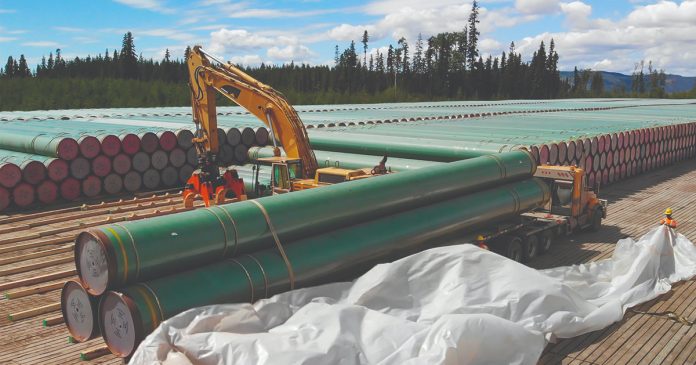A journalism organization has refused to retract false statements it made surrounding the arrest of anti-BC LNG pipeline activists by the RCMP last year.
The Canadian Association of Journalists (CAJ), which bills itself as the “national voice of Canadian journalists,” had printed a statement in November accusing the police of making an illegal arrest.
According to Blacklock’s Reporter, the statement was not only in breach of the CAJ’s ethics code, but it also contained allegations disputed by the Department of Public Safety.
On Nov. 20, the CAJ accused the RCMP of unlawfully detaining two journalists working for CBC-TV and The Narwhal after the pair were holed up in a cabin with anti-pipeline protesters.
“The RCMP has gone outside the law in its efforts to prevent the press from covering events,” the CAJ wrote. “This militarized police force and others continue to arrest journalists despite the fact that doing so is illegal.”
According to the Department of Public Safety, the RCMP acted lawfully in enforcing a court order.
“On November 25 a journalist released a video showing the arrests. However the video does not show what occurred preceding RCMP members’ breach of the structures,” the memo stated. “RCMP officers read the injunction at each structure and made several calls over the course of more than an hour for occupants to exit the structure. The only response from inside the structures were derogatory in nature and refusals. It was not until RCMP officers entered the structures and arrested the individuals that they identified themselves as journalists.”
When pressed on its response to the memo, the CAJ stood by its claim that the arrest was illegal.
“The words published reflect the consensus of the board. All statements issued by the Canadian Association of Journalists come on behalf of the Association and aren’t reflective of one person’s opinion,” said CAJ President Brent Jolly. “As the president I am the spokesperson for the association.”
According to the CAJ’s Ethics Guidelines, journalists in the organization “must verify all facts” and “distinguish between assertions and fact” as well as “independently corroborate facts.”
“When we make a mistake whether in fact or in context and regardless of the platform we correct it promptly and in a transparent manner, acknowledging the nature of the error,” the guidelines state.
Retractions are rare but not unheard of with news organizations.
Earlier in March, the CBC publicly retracted a news story about the trucker Freedom Convoy that erroneously claimed that support for the protests had largely come from foreigners.
According to Blacklock’s Reporter, the claim was made by the CBC radio program The World This Hour.
“On February 10 in a report about the protest convoy CBC Radio’s The World This Hour incorrectly said GoFundMe ended a fundraiser for the protesters over questionable donations to the group,” a statement by the public broadcaster read.
According to GoFundMe executives who testified before a March 3 Commons public safety committee, foreigners made up a very small portion of the donors.
“Our records show 88% of donated funds originated in Canada and 86% of donors were from Canada,” said GoFundMe president Juan Benitez.






















